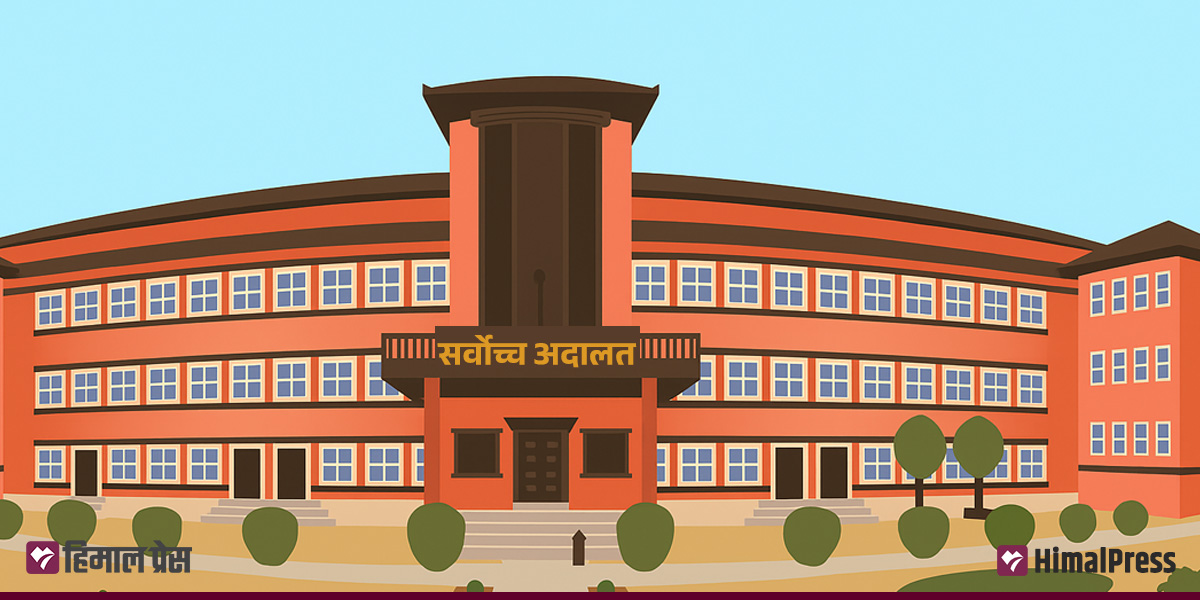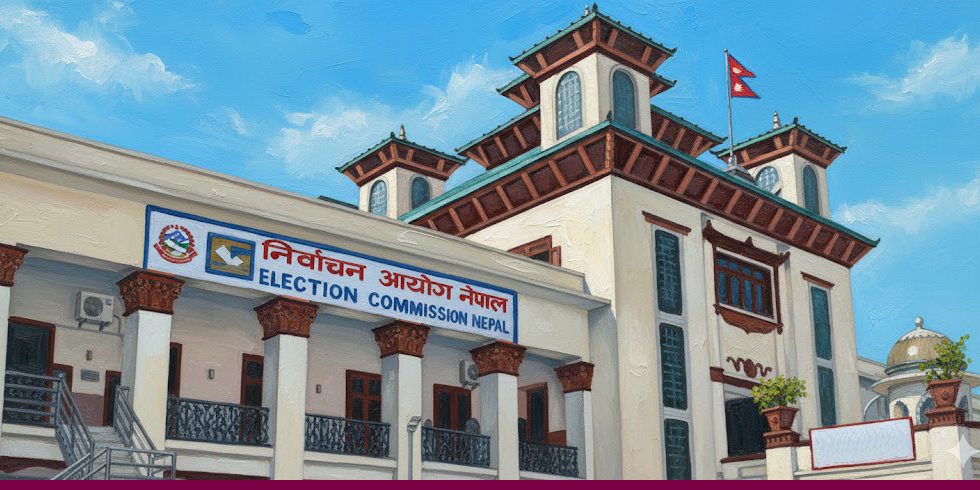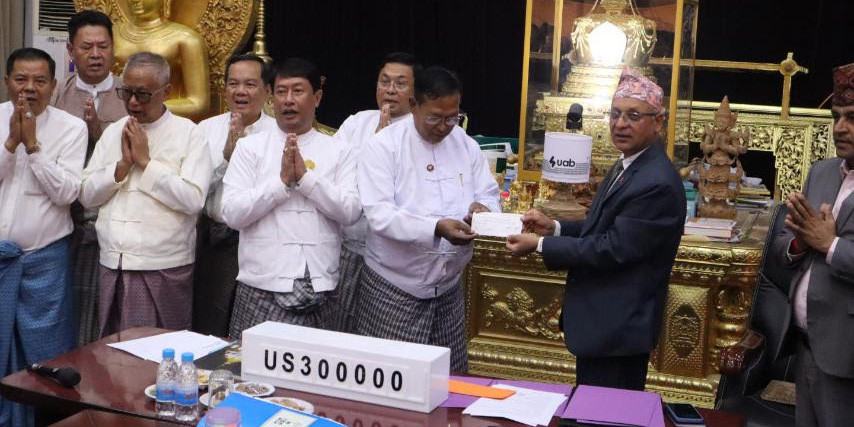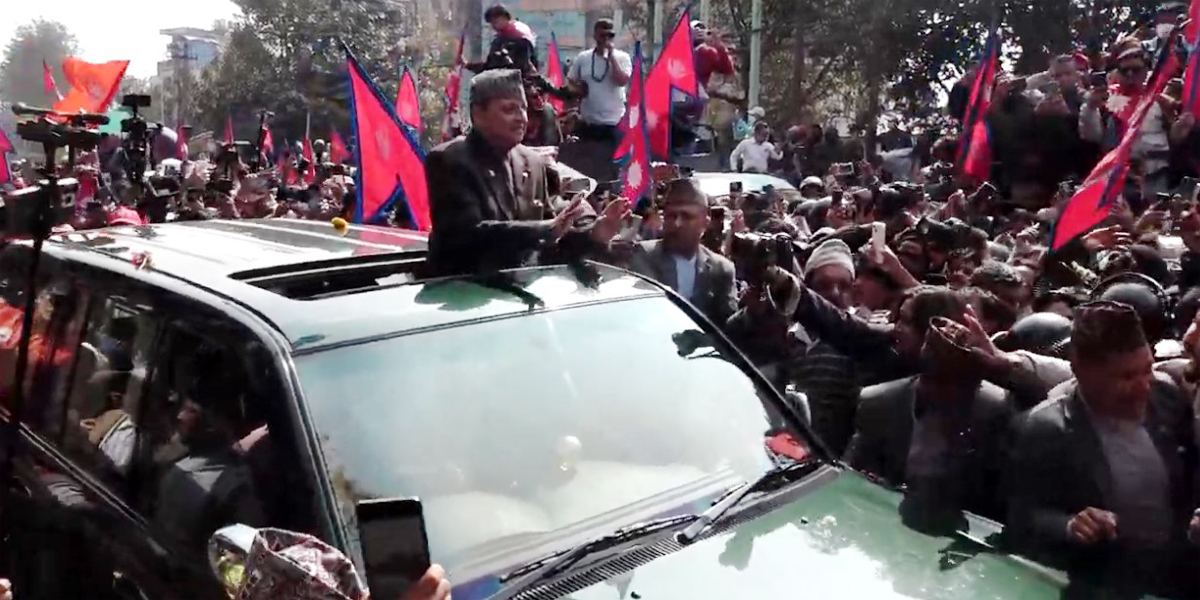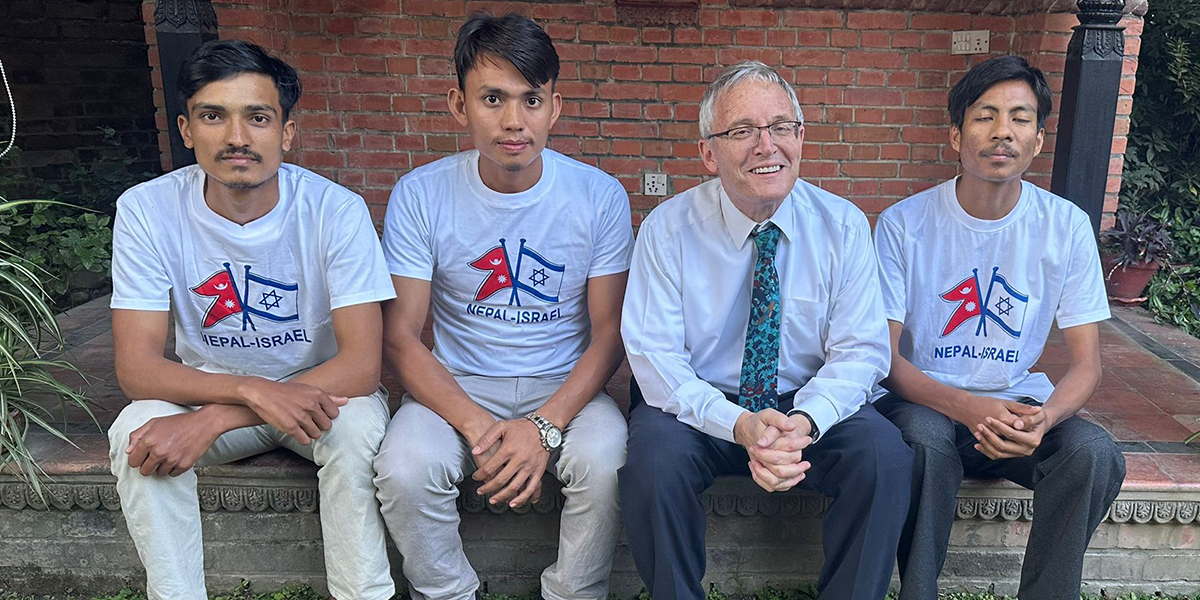 Israeli envoy Hanan Goder with Nepali students rescued from Israel after Hamas attack.
Israeli envoy Hanan Goder with Nepali students rescued from Israel after Hamas attack.
KATHMANDU: Israeli Ambassador to Nepal, Hanan Goder, has questioned UN Secretary-General Antonio Guterres’ repeated requests to Israel to halt the attack on Gaza during his visit to Nepal last Sunday. “Mistakes like this can have serious consequences. Israel won’t make such a mistake again,” he said during an interaction with the media on Thursday.
Guterres had called for an emergency humanitarian ceasefire, expressing concern about the nearly two million people in the Gaza Strip who were deprived of essential services and living in precarious conditions.
“Israel will not cease its military operations until Hamas, which initiated a terrorist attack on Israel on October 7 by land, sea, and air, surrenders and lays down its arms,” Goder said flanked by three Nepali survivors rescued from Israel.
The Embassy of Israel in Kathmandu on Thursday organized a candlelight vigil at Goder’s residence in Bishalnagar to honor the ten Nepali students who tragically lost their lives in the Hamas attack. Goder also alluded to Nepal’s voting history in the United Nations, saying, “Israel will never forget Nepal’s voting in the United Nations. We expected our friends not to side with the aggressor, but it seems that Nepal has failed in this regard. India showed friendship, while Nepal did not,” he said.
He stressed the necessity of eliminating Hamas, a terrorist organization that infiltrates homes, targets civilians, and kidnaps the elderly, children, and even pregnant women and infants. Goder insisted that Israel had offered Gaza residents two weeks to leave for safer locations.
Goder pointed out that Israel had previously sought coexistence with Palestinians but Hamas had misconstrued it as weakness.
He emphasized that Israel had to protect its citizens, even if it meant paying a high price in this conflict. Goder expressed concerns that the war might escalate further.
Recently, under Egypt’s mediation, the Rafah border crossing with Egypt allowed numerous foreign passport holders and injured Palestinians to leave Gaza in a controlled manner, benefiting thousands of foreign citizens.
US President Joe Biden also thanked Qatar for facilitating the reopening of the border crossing, which had been closed due to recent hostilities.
Goder recalled the loss of ten Nepali students in the attack by Hamas, highlighting the harrowing experiences of three survivors. They recounted how they narrowly escaped by taking shelter in a bunker and a kitchen, showing injuries from shrapnel. They mentioned their recent arrival in Israel and their confusion when the attacks began.
The Nepali survivors revealed that even when the Israeli army arrived, Hamas continued its attacks, leading to the loss of one of their friends. They also mentioned the presence of a Thai team responsible for bunker relocation. Pramod KC, Virendra Chaudhary, and Dhan Bahadur Chaudhary, students from Sudurpasicham University’s agriculture department, recounted their ordeal.
They explained that they endured nine hours of discomfort in the bunker, experiencing the relentless bombardment, direct shooting, and even the tragic sight of a mother dropping her child while fleeing. They expressed gratitude for the support of the Israeli government and their desire to return to Israel despite the traumatic experience. They acknowledged that Israel considered groups like Hamas as threats and would not underestimate them.
The bombardment began suddenly and led to considerable distress as it resumed after a brief pause, lasting for nine continuous hours. This prompted more Nepalis to seek shelter with them. They noted that few non-Nepali citizens were present in the area and commended the assistance provided by the Israeli government and their embassy. They stressed the necessity of being evacuated from a perilous situation, even though they had survived and still wished to return to Israel.

 Himal Press
Himal Press 
